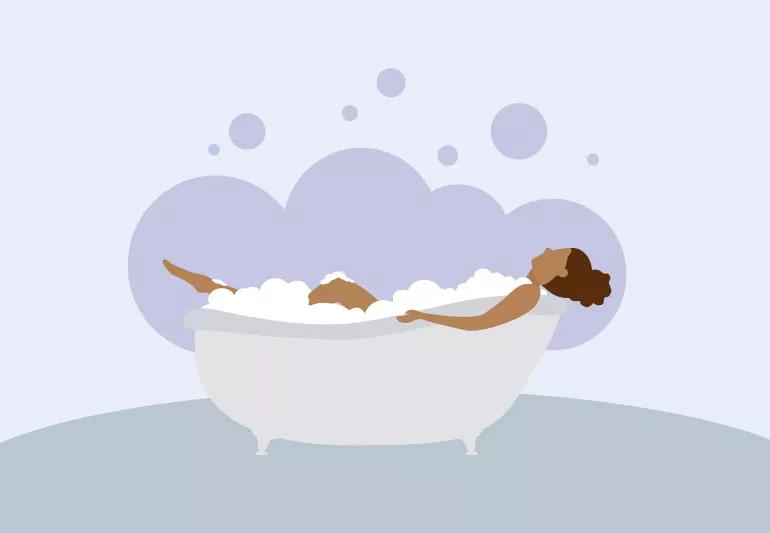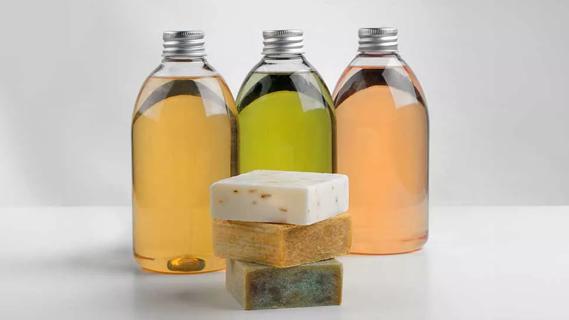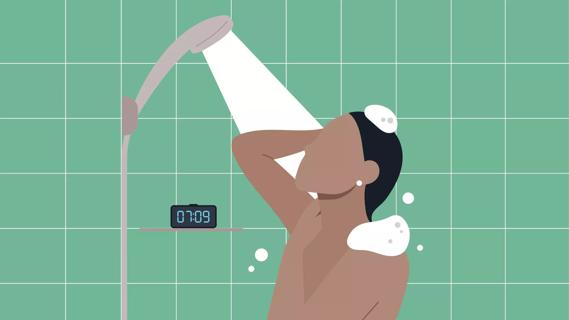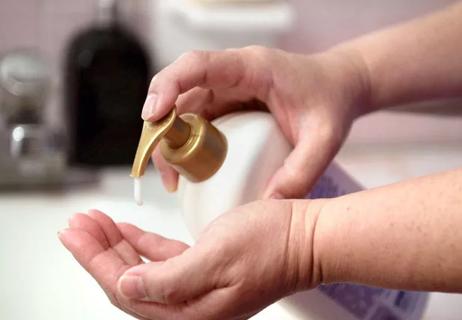Soaking in the tub benefits your body and your mind

Baths are wildly popular with kids. The splishing. The splashing. The adorable little rubber duckies.
Advertisement
Cleveland Clinic is a non-profit academic medical center. Advertising on our site helps support our mission. We do not endorse non-Cleveland Clinic products or services. Policy
But as a busy grownup with a job, bills to pay and a schedule to keep, you may not feel like you have the luxury of soaking in the tub until your fingers get all pruney. Maybe you’re not anti-bath. But it’s just not your top priority.
So, you jump in the shower. You do what you gotta do. You towel off and move on with your day.
But you’re missing out. Because a relaxing bath can really do you some good.
“Taking a bath has great physical and mental health benefits,” says family medicine provider Amy Zack, MD. “Soaking in a tub is something many people have access to but don’t take advantage of enough. But it can be beneficial for a lot of people.”
Baths shouldn’t be an everyday thing. But if you can carve out 10 or 15 minutes for a bath just once a week, you may find it makes a difference in your overall health. Dr. Zack shares why baths are good for you and a few tips for getting the most from them.
OK, so maybe your main focus here is to get your body clean. We hear you. And bathing can get the job done in more ways than one.
That’s because baths give your skin some time to soften, so as you’re scrub-a-dubbing, you get the added benefit of exfoliation. That’s great for keeping your skin silky smooth and a perfect time for a close shave.
Advertisement
“Bathing cleans your skin, helping you avoid irritation, inflammation and sores caused by dead skin cell accumulation,” Dr. Zack explains. “It can also help you clear away the bacterial and fungal load from contact in your environment. As that accumulates, it increases your risk of infection.”
What’s more, the warm water opens up your pores. That flushes out the grime that builds up over the day and lets your soap really get in and do its job.
Picture it: Soothing music, a good book, a candle burning in your favorite scent. Done right, a bath can be the ultimate in self-care — something many people just don’t do enough of. Self-care isn’t about being selfish or neglecting others. It’s about taking time to respect your own needs.
Self-care relieves stress. You probably think of stress as an emotional burden, and it is. But it’s also toxic for your body. Stress has been connected to a number of ailments, like:
Some research studies also suggest that a type of warm bath therapy may have positive effects on people living with depression. Warm baths are linked to decreases in stress hormones and more balanced serotonin levels, which help regulate mood.
For maximum relaxation, close the door and say “no” to endless interruptions.
At least one study shows that taking a warm shower or bath before bed can help you fall asleep faster and sleep better.
Here’s why the researchers say may happen:
Throughout the day, your core body temperature fluctuates a bit. That’s normal. For ideal sleep, your temperature needs to drop about two or three degrees. And while it might seem like taking a bath gets you all warm and cozy and, therefore, increases your temperature, it’s actually the opposite.
As your body warms up in the bath, it brings your blood to the surface. That means your heat is pulled from your core. That lowers your body temperature and promotes relaxation and sleep.
And there’s more to it.
“Baths also create a good environment for meditation, thought and escape from everyday stressors,” Dr. Zack notes. “Promoting relaxation helps you let go of things that can keep you awake as you try to wind down.”
For your best sleep, try a 10- or 15-minute bath about an hour or two before bed.
There’s a reason just about every sports movie shows athletes hanging out in a big metal bathtub in the locker room after the big game. Soaking in a warm bath can help with muscle soreness and tension.
Advertisement
Taking care of your achy muscles will help you get through your day with less pain. That means more range of motion and improved ability to exercise. Win-win.
If you’re feeling adventurous, ice baths can also be an option for some people with sore muscles. Chill the bath temperature to between 53 and 68 degrees Fahrenheit (about 12 to 20 degrees Celsius).
That’s pretty cold, so start slow. Try soaking in an ice bath for about five minutes (if you can hack it), maxing out at no more than 10 minutes.
Dr. Zack says that baths can help soothe some infected sores and wounds. Your doctor may recommend soaking an affected area with a warm saltwater solution to aid healing. But some wounds should be kept dry, so check with your doctor before dipping.
Now before you run to the tub and turn your bath on full blast, let’s set a few ground rules for maximum benefit:
Advertisement
While bubbles or bath salts may take your bath from enjoyable to life-changing, Dr. Zack says that plain old water is fine, too. No need to overthink things here.
But if you do want to add a little something extra to the tub, consider kicking it up a notch with some Epsom salts, which can further help you relax and ease your aches and pain.
Add about a cup and a half of Epsom salts to a tub full of warm water. Soak for about 15 minutes to experience the benefits. Again, don’t overdo it. Using Epsom salts or another bath product too often can dry skin as well, leading to itching, irritation and eczema.
And people with sensitive skin should avoid bath bombs or bubbles, as they could cause redness, itching or scaling. But if your skin doesn’t seem to mind them, go ahead and treat yourself on occasion.
Cleaning your body doesn’t have to be just one more thing on your to-do list. It can be a chance to care for your physical and mental well-being.
Advertisement

Sign up for our Health Essentials emails for expert guidance on nutrition, fitness, sleep, skin care and more.
Learn more about our editorial process.
Advertisement

Bathing once a day is the general guidance, but you could also have reasons to soap up twice a day or not at all

You’re sharing your sheets with dust mites, bacteria and lots of dead skin, so you’ll want to keep your bedding fresh

You may notice itching, redness and swelling after wearing or using laundered items

We don’t fully understand how cleanliness impacts immune system development, but we do know that preventing illness is important

An icy blast may boost mental clarity, increase circulation and give your skin a little glow — but don’t overdo it

This olive oil-based soap is generally mild and safe when diluted

It’s a wash — when you bathe is a personal preference

Try turning the heat down on the water and opting for a moisturizing soap

Even small moments of time outdoors can help reduce stress, boost mood and restore a sense of calm

A correct prescription helps your eyes see clearly — but as natural changes occur, you may need stronger or different eyeglasses

Both are medical emergencies, but they are very distinct events with different causes